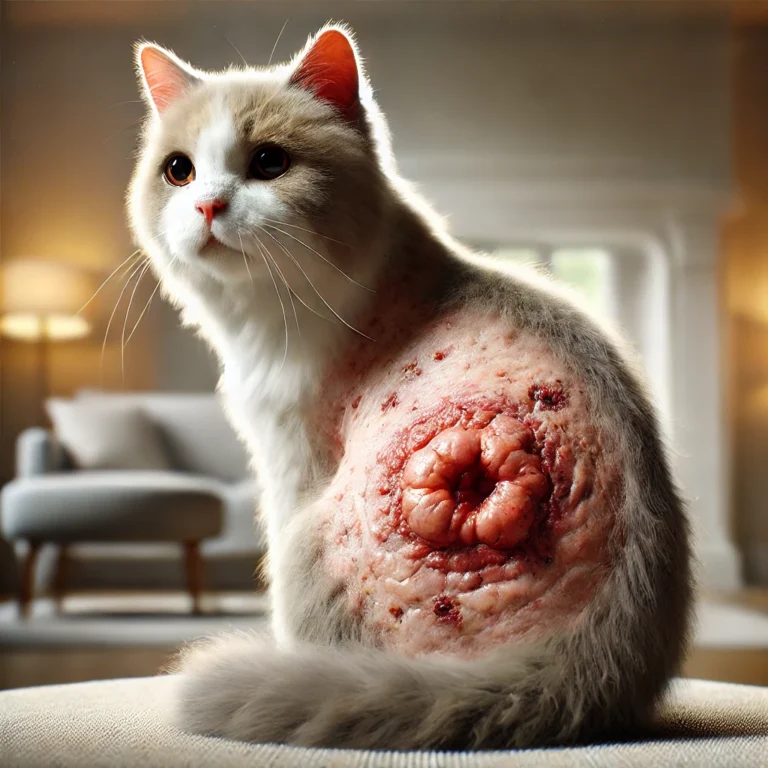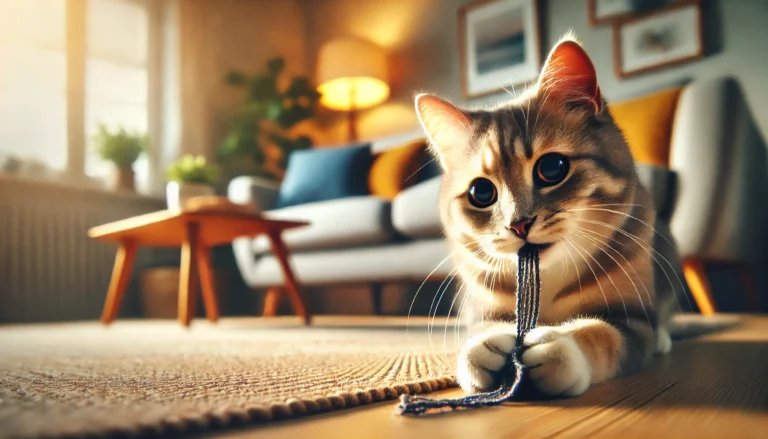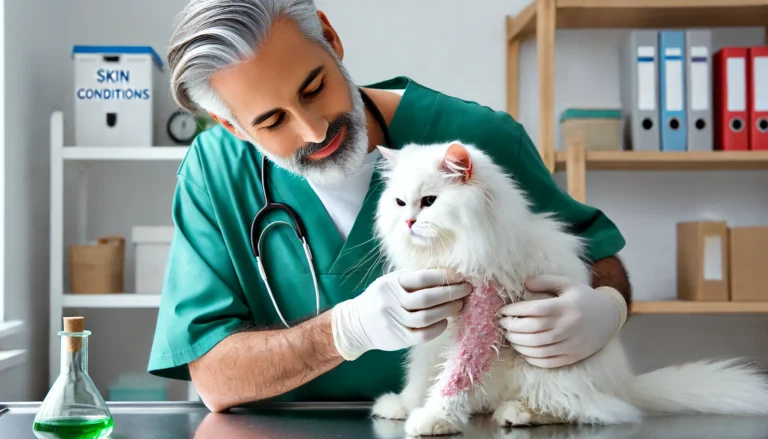Cat Peeing on the Bed: 10 Effective Solutions to Stop
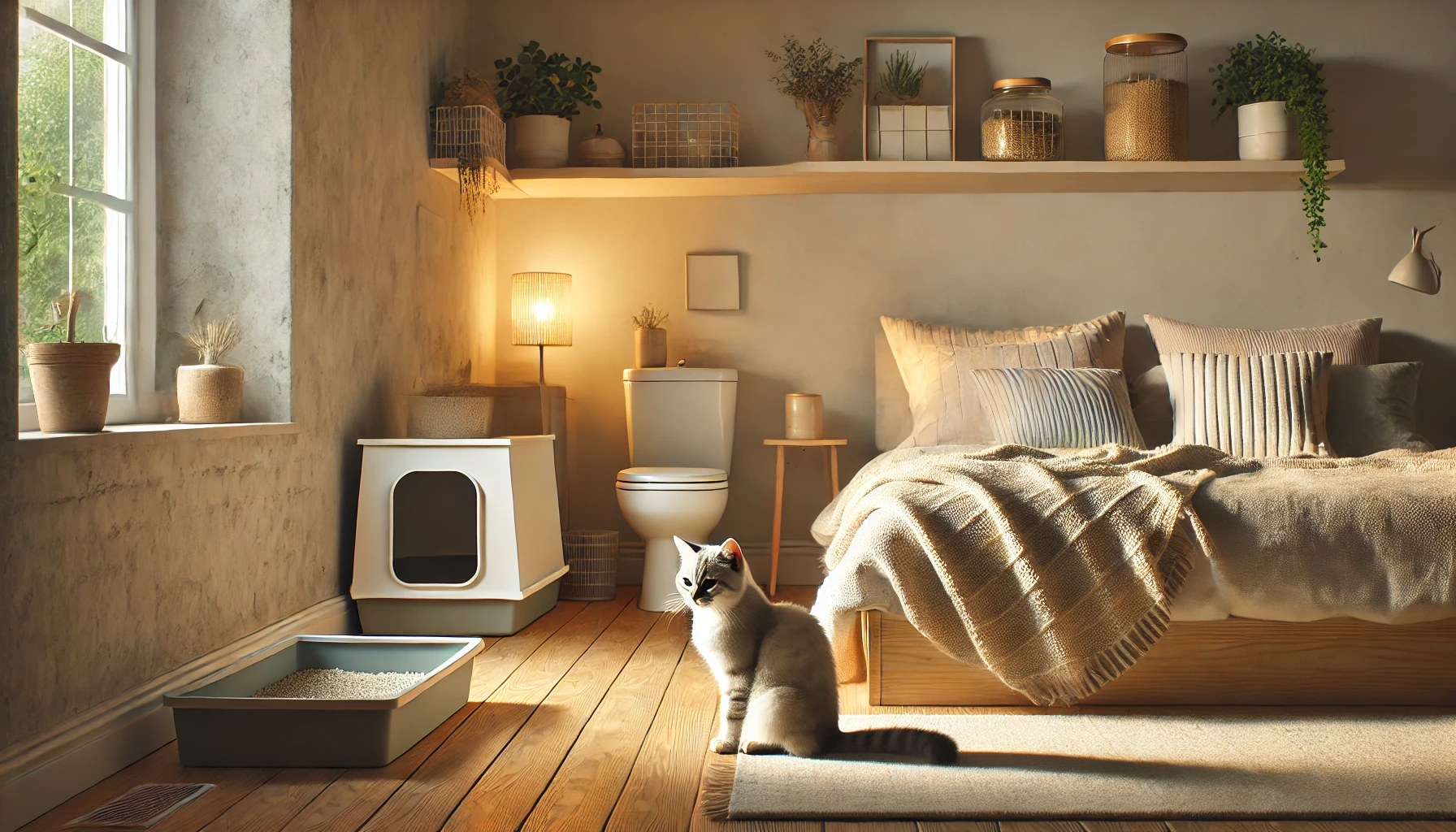
Dealing with a cat peeing on the bed can be incredibly frustrating and concerning for cat owners. This unexpected behavior not only disrupts the comfort of your living space but also raises questions about your cat’s health and happiness. Understanding why your cat is urinating outside the litter box—especially on a bed—is the first step to finding effective solutions.
In this article, we’ll explore the top reasons cats may pee on the bed, from medical concerns to stress and behavioral issues. Plus, we’ll provide 10 effective solutions to stop this habit, as well as easy home remedies and cleaning tips to restore your bed.
Table of Contents
Top Reasons Your Cat is Peeing on the Bed
Understanding the reasons behind cat peeing on the bed can help address the root cause. Cats may exhibit this behavior due to medical conditions, stress, or issues with their environment. Here are the most common reasons:
- Medical Issues
Health problems like urinary tract infections (UTIs), bladder stones, or kidney disease can cause discomfort, making cats urinate outside the litter box. When a cat associates the litter box with pain, it may avoid it altogether. - Litter Box Problems
Cats are particular about their litter boxes. If the box isn’t cleaned frequently, is too small, or has an unpleasant location, your cat might seek other areas, like the bed, to relieve itself. - Stress and Anxiety
Changes in a cat’s environment—such as a new pet, a change in household routine, or unfamiliar visitors—can cause stress, leading to peeing outside the litter box as a way to mark territory or cope with anxiety. - Territorial Marking
Cats may urinate on beds to mark their territory, especially if they feel threatened or if there’s another cat in the house. - Old Age or Mobility Issues
Senior cats or cats with joint pain might avoid the litter box if it’s too difficult to access, causing accidents on soft, accessible surfaces like beds.
Each of these factors can influence why your cat is urinating on the bed. In the next section, we’ll look more closely at specific medical causes and what signs to watch for.
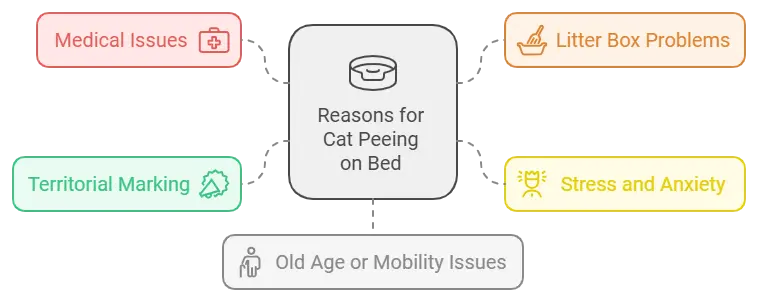
Medical Causes Behind Bed Peeing Behavior
If your cat is peeing on the bed, medical issues could be a primary cause. It’s essential to rule out health problems before addressing other factors. Here’s a table of common medical conditions that can lead to inappropriate urination:
| Medical Condition | Symptoms to Watch For | Why it Causes Peeing on the Bed |
|---|---|---|
| Urinary Tract Infection | Frequent urination, straining, blood in urine, excessive licking | Causes discomfort, leading cats to avoid the litter box |
| Bladder Stones | Painful urination, visible distress when peeing | Stones make urination painful, creating negative associations |
| Kidney Disease | Increased thirst and urination, weight loss | Leads to accidents if the cat can’t reach the litter box in time |
| Diabetes | Increased thirst, frequent urination | Excessive urination can lead to bed soiling when caught off guard |
| Arthritis or Joint Pain | Reluctance to jump or climb, stiff movement | Older cats may struggle to reach the litter box |
When a cat experiences pain or discomfort from these conditions, it may begin to see the litter box as the source of its pain, opting to urinate in other, softer areas like the bed.
If any of these symptoms seem familiar, a visit to the vet is recommended. Addressing the medical issue may be all it takes to stop the cat from peeing on the bed.
Behavioral and Environmental Triggers
If medical issues are ruled out, behavioral and environmental factors could be leading to your cat’s bed-peeing habit. Cats are sensitive creatures, and any changes in their surroundings or routine can trigger stress or anxiety, often resulting in unwanted behaviors. Here are some common triggers:
- Stress from Changes in Routine
Cats thrive on routine. Any changes, such as a new work schedule, moving to a new home, or even rearranging furniture, can stress your cat, causing it to pee on the bed as a response. - Introduction of New Pets or People
A new pet or person in the home can make a cat feel threatened. Urinating on the bed may be its way of marking territory, as the bed holds a strong scent of the owner, providing a sense of security. - Litter Box Issues
Cats are very particular about their litter boxes. Here are some common litter box-related issues:- Location: If the litter box is in a noisy or busy area, your cat might avoid it.
- Cleanliness: Cats need a clean litter box. Any foul smell could push them to find an alternative spot.
- Type of Litter: Some cats are picky about litter textures and smells. Experiment with different types to find one your cat prefers.
- Territorial Behavior
Cats sometimes mark territory with urine. This is more common in multi-cat households or if there are outdoor cats near the house. Your cat may feel the need to “claim” the bed as its own territory. - Separation Anxiety
Cats with separation anxiety may pee on the bed as a comfort-seeking behavior. Since beds carry their owners’ scent, peeing on the bed can be a way for the cat to feel closer to you when you’re not around.
Understanding these behavioral triggers is crucial for addressing the issue effectively. In the next section, we’ll discuss 10 Proven Solutions to Stop Your Cat Peeing on the Bed to help you eliminate this behavior.
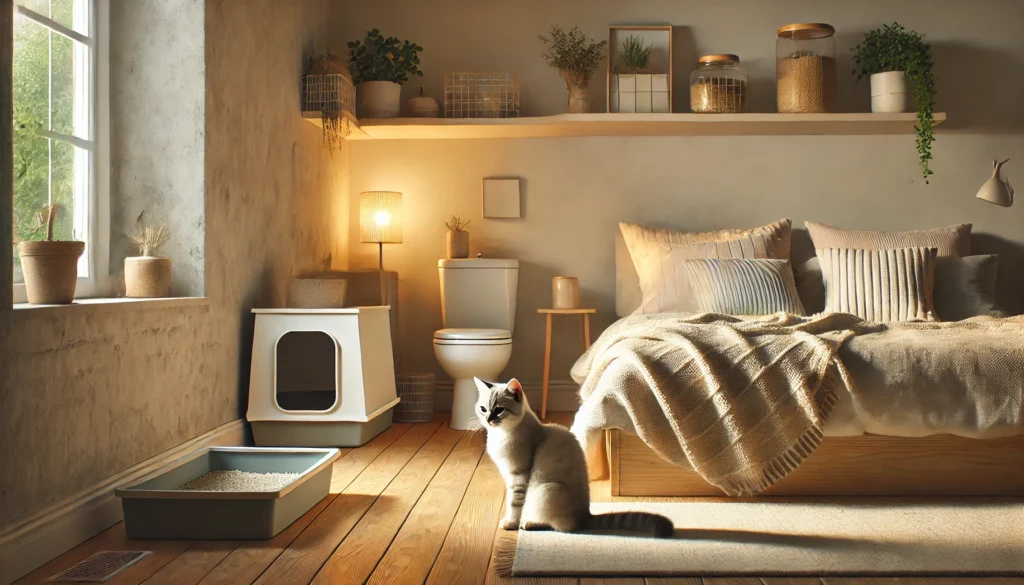
10 Proven Solutions to Stop Your Cat Peeing on the Bed
If your cat is frequently peeing on the bed, implementing effective solutions can help redirect this behavior. Here’s a list of 10 proven solutions to tackle this problem:
- Consult a Veterinarian
If your cat has suddenly started peeing on the bed, schedule a vet visit to rule out any underlying medical issues, such as UTIs or kidney problems. - Keep the Litter Box Clean
Clean the litter box daily and deep-clean it weekly to eliminate smells that may drive your cat away. - Add an Extra Litter Box
In multi-cat households, provide one litter box per cat plus an extra. Cats like having options, especially in shared spaces. - Choose the Right Litter
Experiment with different types of cat litter to find one your cat prefers. Some cats are sensitive to texture or scent. - Optimize Litter Box Location
Place the litter box in a quiet, accessible spot, away from noisy appliances or high-traffic areas. - Reduce Stress and Anxiety
Use calming aids like Feliway diffusers or sprays, which release cat-friendly pheromones that reduce stress. - Create a Separate Territory
If there are multiple cats in the house, set up designated areas with separate resources (like food and litter boxes) to minimize territorial stress. - Limit Access to the Bed
Keep bedroom doors closed when you’re not around. Restricting access can help break the habit while implementing other solutions. - Use a Waterproof Mattress Protector
If accidents are frequent, use a waterproof mattress cover to protect your bed and simplify cleanup. - Reward Positive Litter Box Use
Reinforce good habits with praise or treats whenever your cat uses the litter box, encouraging consistent behavior.
Did You Know?
Cats bring joy and companionship to millions of homes, and naturally, we want our feline friends to stay with us as long as possible. But how long do cats live? The answer varies based on several factors, including genetics, lifestyle, and health care. Generally, a cat’s lifespan can range widely, with some cats living only 10 years and others reaching up to 20 years or more
Home Remedies and DIY Tips
Home remedies can be effective in preventing your cat from peeing on the bed and making the area less appealing for future incidents. Here are some simple and safe DIY methods:
- White Vinegar Solution
- Mix equal parts white vinegar and water in a spray bottle.
- Lightly spray this solution on your bed’s surface (ensure your bedding is vinegar-safe).
Vinegar neutralizes odors and makes the bed less attractive for urination.
- Citrus Repellent Spray
- Combine water with a few drops of citrus essential oil (like lemon or orange).
- Spray lightly around the bed’s perimeter, as cats dislike citrus scents.
- Lavender Oil
- Lavender oil can help calm anxious cats and discourage bed-peeing.
- Add a few drops to a diffuser in the bedroom or dilute with water and lightly mist your bedding.
- Use Baking Soda for Odor Control
- Sprinkle a small amount of baking soda on your mattress to absorb urine odors.
- Let it sit for a few hours, then vacuum thoroughly. Baking soda eliminates lingering smells that could attract your cat.
- Double-Sided Tape
- Place double-sided tape along the edges of your bed. Cats dislike sticky textures, and this can deter them from jumping on the bed.
- Aluminum Foil Layer
- For a temporary fix, place a sheet of aluminum foil on top of your bed. The crinkling sound and feel will discourage your cat from walking or urinating on it.
- Herbal Calming Sachets
- Make small sachets filled with calming herbs like chamomile or valerian and place them near the bed. These scents can help reduce stress and keep your cat away from the bed.
These home remedies are safe, affordable, and easy to implement, helping keep your bed fresh while discouraging accidents.
Step-by-Step Guide for Cleaning Cat Urine from the Bed
Cleaning cat urine thoroughly is essential to remove odors and prevent repeat accidents. Follow these steps to eliminate the smell and keep your bed fresh:
Step 1: Blot the Area
- Immediately blot the urine with paper towels or a clean cloth.
- Press down to absorb as much liquid as possible, but avoid rubbing, as this can spread the stain.
Step 2: Apply an Enzyme Cleaner
- Use an enzyme-based cleaner specifically designed for pet stains, as it breaks down the proteins in cat urine, eliminating odors.
- Spray the affected area generously and let it sit for the time recommended on the cleaner’s label.
Step 3: Soak with White Vinegar Solution
- Mix a solution of one part white vinegar to two parts water.
- Pour or spray this over the affected area to neutralize any lingering odor.
- Let the vinegar solution sit for 10-15 minutes, then blot it dry with a towel.
Step 4: Sprinkle Baking Soda
- After the vinegar solution dries, sprinkle baking soda over the area.
- Baking soda absorbs remaining odors. Let it sit for a few hours, or even overnight, if possible.
Step 5: Vacuum the Area
- Once the baking soda has absorbed the odors, vacuum it up thoroughly.
- This will leave the mattress clean and odor-free.
Step 6: Use a Waterproof Mattress Protector
- Consider using a waterproof mattress protector to prevent future urine from reaching the mattress.
- This protector also makes it easy to clean any spills or accidents in the future.
Following these steps will help keep your bed clean and free from odor, reducing the chances of your cat peeing on the bed again.
Prevention Tips for Long-Term Success
Establishing preventive habits can be the most effective way to stop your cat from peeing on the bed in the long term. Here are some strategies to keep both your bed and your cat happy:
1. Maintain a Clean Litter Box
- Clean the litter box daily and replace litter regularly. A fresh box reduces the likelihood of your cat avoiding it.
2. Add More Litter Boxes
- Follow the “one box per cat, plus one extra” rule, especially in multi-cat households. Extra litter boxes provide options and help reduce territorial stress.
3. Place the Litter Box in a Quiet Area
- Place the litter box in a low-traffic, quiet spot where your cat feels safe. Avoid noisy areas that might make your cat feel anxious about using the box.
4. Use a Calming Diffuser
- Calming pheromone diffusers, like Feliway, release a scent that helps reduce stress in cats. Place one in rooms your cat frequently visits to help create a soothing environment.
5. Reinforce Positive Behavior
- When your cat uses the litter box, offer praise or a small treat. Positive reinforcement can strengthen litter box habits over time.
6. Provide Comfortable Spaces
- Offer alternative cozy spots around the house, like cat beds or padded shelves, so your cat has designated places to relax instead of seeking comfort on your bed.
7. Limit Access to the Bedroom
- If accidents continue, keep the bedroom door closed whenever possible. Restricting access can help break the habit while reinforcing the litter box as the preferred spot.
8. Address Anxiety Triggers
- Identify and minimize sources of stress, like frequent visitors, loud sounds, or interactions with other pets. Reducing stress helps make your cat more likely to use the litter box consistently.
Using these prevention tips, you can create a stable, welcoming environment that encourages your cat to avoid inappropriate urination and stick to the litter box.
Conclusion
Dealing with a cat peeing on the bed can be challenging, but understanding the causes and applying effective solutions can help resolve the issue. From medical evaluations to behavioral adjustments, each step in this process aims to address your cat’s needs while keeping your home clean and comfortable. By maintaining a clean litter box, managing stressors, and using home remedies, you can create an environment that encourages healthy habits and reduces accidents.
Remember, consistency is key. Implement these strategies patiently, and soon you’ll notice positive changes in your cat’s behavior, making for a happier, healthier relationship.
Frequently Asked Questions (FAQs)
1. Do cats pee on the bed out of spite?
Cats don’t act out of spite. Bed peeing often indicates stress, anxiety, or a health problem rather than revenge or anger.
2. How can I clean cat urine from my mattress?
Use an enzyme cleaner to break down the urine proteins, followed by a vinegar solution and baking soda to remove odors completely.
3. Why is my cat peeing on the bed suddenly?
Sudden changes in urination behavior may stem from health issues, changes in the household, or anxiety. Consulting a vet can help identify the cause.
4. Can I train my cat to stop peeing on the bed?
Yes, through positive reinforcement, maintaining a clean litter box, and reducing stress, you can guide your cat back to proper litter box use.
5. Are there specific scents that deter cats from peeing?
Cats dislike citrus scents, so a light citrus spray around the bed can help deter them. Lavender and vinegar also have mild deterrent effects.

